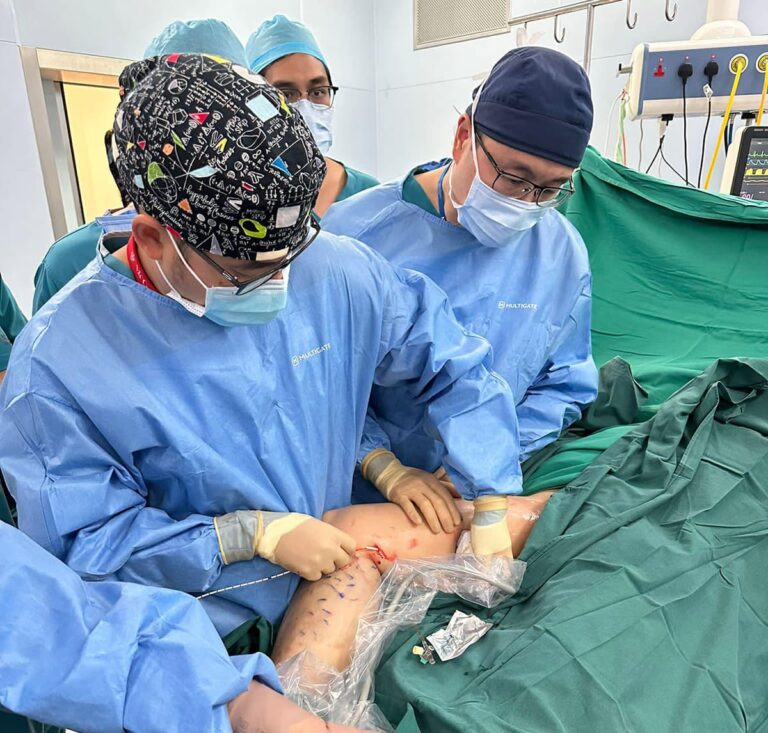Stroke and cerebrovascular diseases are the leading causes of death and disability worldwide. In Singapore, cerebrovascular disease was the fourth common cause of death in 2021.
Cerebrovascular disease is an umbrella term encompassing a range of conditions affecting blood flow to the brain. Stroke is a specific condition occurring when blood flow to a part of the brain is interrupted, causing brain tissue damage.
Understanding stroke and cerebrovascular disease is crucial for protecting your brain health. This article explores the causes, risk factors and preventive measures to empower you to take charge of your health.
What Is a Cerebrovascular Disease
Cerebrovascular disease refers to conditions disrupting blood flow and the blood vessels in the brain. Two commonly affected cerebral blood vessels are the carotid and vertebral arteries, which supply blood to the brain.
- Carotid arteries are blood vessels located along the front of the neck on the right and left side.
- Vertebral arteries are blood vessels located along the back of the neck on the right and left side.
Symptoms and Types of Cerebrovascular Disease
Stroke generally refers to cerebrovascular diseases causing blood flow reduction (ischemic stroke) or bleeding (haemorrhagic stroke) to the brain.
Symptoms of Stroke

- Dizziness, nausea or vomiting

- Sudden vision problems in one or both eyes

- Sudden numbness on the side of the body

- Difficulty in speaking

- Severe headache
What Causes Cerebrovascular Disease
Stroke and cerebrovascular diseases may occur due to uncontrolled high blood pressure, which causes blood vessels to rupture and may lead to bleeding in the brain.
Traumatic brain injury can be a cause as well. Accidents causing a hard bump or jolt to the head or getting hit by a foreign object may lead to short-term or long-term cerebrovascular disease.
Causes of Cerebrovascular Disease may also include:
- Atherosclerosis, or the hardening and narrowing of arteries due to plaque buildup, can restrict blood flow.
- Blood clots form in the arteries or travel from elsewhere in the body, blocking blood flow to the brain.
- Vasculitis, or blood vessel inflammation, can damage blood vessels and impair blood flow.
Who Is at Risk of Cerebrovascular Disease
Individuals with sedentary lifestyles may be at risk of cerebrovascular disease.
Modifiable Risk Factors For Cerebrovascular Disease
- High blood pressure forces blood against the artery walls with excessive pressure. Over time, this constant strain damages and weakens the arteries, making them more susceptible to atherosclerosis (plaque buildup) and narrowing.
- High cholesterol levels contribute to plaque buildup in arteries.
- Diabetes and Smoking damage blood vessels and increase the risk of blood clots.
- Excess weight puts a strain on the circulatory system and increases blood pressure.
- Physical inactivity contributes to reduced blood flow and an overall decrease in cardiovascular health.
- Unhealthy diet high in saturated fats, processed foods and sodium can worsen cardiovascular health.
Non-Modifiable Risk Factors For Cerebrovascular Disease
- Age – The risk of stroke and cerebrovascular disease increases with age.
- Family history – A history of stroke or other vascular diseases increases your risk.
- Gender – Men are generally at a higher risk of stroke than women, although the risk increases for women after menopause.
How to Prevent Cerebrovascular Disease: 5 Ways for Cerebrovascular Disease Prevention

- Maintain a healthy weight – Exercise regularly and eat a balanced diet low in saturated fats and sodium.

- Manage blood pressure – Regularly monitor and control your blood pressure with medication or lifestyle changes if needed.

- Control cholesterol – Reduce LDL cholesterol levels with a healthy diet and medication if necessary.

- Manage diabetes – If you have diabetes, work closely with your doctor to manage blood sugar levels effectively.

- Quit smoking – Smoking cessation is crucial for improving cardiovascular health.
If you experience these symptoms, consult our vascular specialists to receive a comprehensive assessment and effective treatment.
The Vascular and Endovascular Comprehensive Approach to Stroke and Carotid Disease: Cerebrovascular Disease Treatments
Cerebrovascular disease treatment depends on the specific condition, its severity and the patient’s overall health. The Vascular and Endovascular clinic employs a multi-pronged approach, with treatment options varying based on the severity of the blockage or condition.
Mild Cases
Medication is usually the first line of defence for milder cases of cerebrovascular disease.
- Antiplatelet medications prevent blood clots from forming, reducing the risk of stroke.
- Cholesterol-lowering medications like statins manage LDL cholesterol levels and reduce plaque buildup in arteries.
Moderate to Severe Cases
For moderate to severe cases with significant blockage (often exceeding 70%), minimally invasive surgical procedures might be recommended.
- Carotid Screening before surgery to assess the carotid arteries for signs of blockage.
- Carotid Endarterectomy to remove plaque buildup from the carotid artery in the neck. This procedure is highly effective in preventing strokes.
- Carotid Angioplasty and Stenting to replace surgery, which is deemed too risky due to underlying health conditions. A balloon widens the narrowed artery and then inserts a stent to keep it open.
By offering various treatment options and experienced expertise, the Vascular and Endovascular Clinic empowers patients to receive safe, appropriate and effective care. Working collaboratively with you, the clinic’s team strives to achieve optimal outcomes and minimise the risk of future complications.
Your Journey to Optimal Health Starts with Routine Screening and Check-Ups at VEC
We understand the importance of early screening and intervention at the Vascular and Endovascular Clinic. Our team of skilled and experienced vascular specialists, led by Dr Tang Tjun Yip and Dr Julian Wong, is dedicated to providing comprehensive care for patients with vascular conditions, including stroke and cerebrovascular diseases.
We offer full spectrum screening packages with quick, non-invasive diagnostic techniques, personalised treatment plans and ongoing support to ensure optimal outcomes.
Safeguard your brain health to live a long and healthy life.
Schedule a consultation with our internationally-trained vascular specialists!









